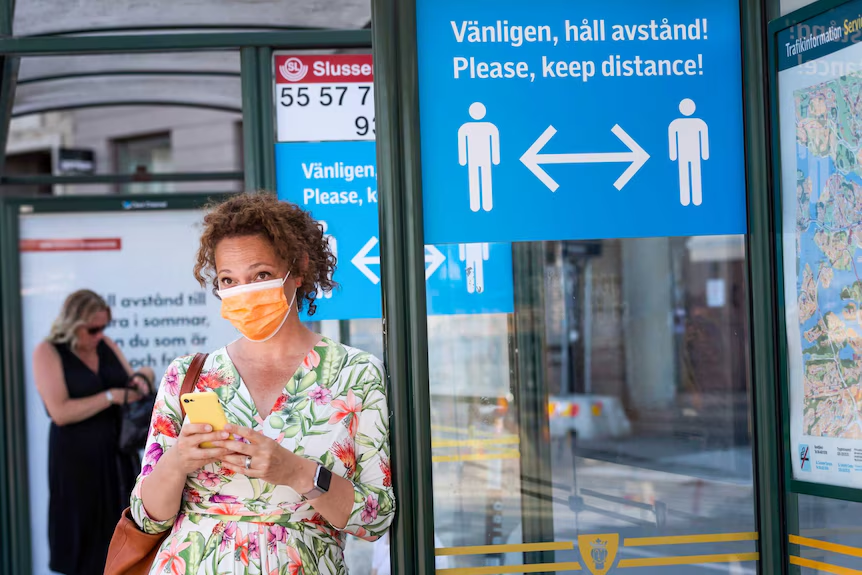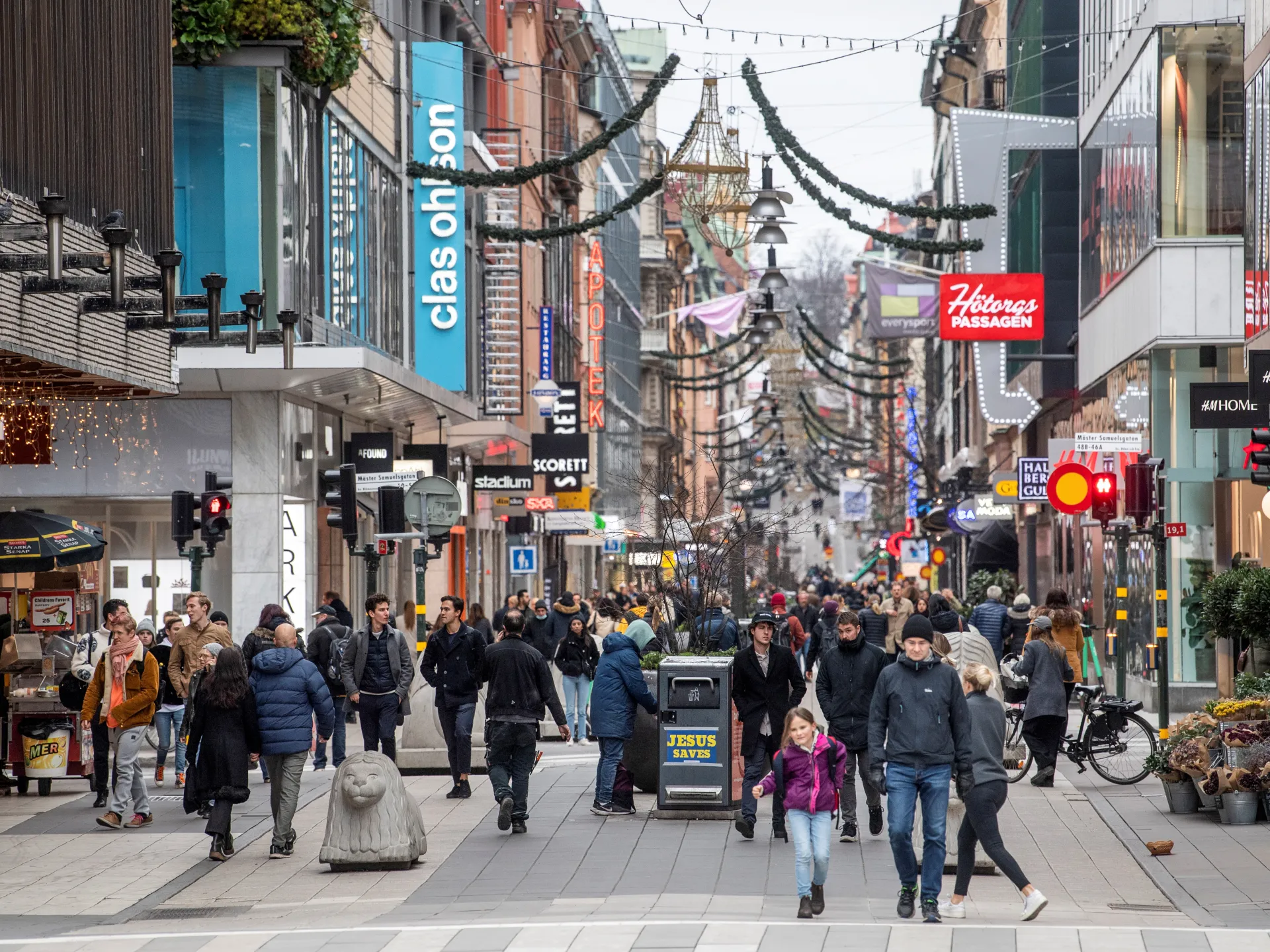The COVID-19 pandemic fundamentally altered the way societies functioned worldwide, and Sweden, known for its unique approach to public health and societal norms, faced its own set of challenges and transformations. Life in Sweden after COVID is a blend of returning to normality, adapting to new norms, and acknowledging the changes that the pandemic has brought to both personal and societal levels. This reflection covers various aspects, from healthcare and work culture to social life, mental health, and Sweden’s continued focus on sustainability.

1. Sweden’s Unique Approach to COVID-19
At the onset of the pandemic, Sweden garnered significant global attention for its decision not to implement a strict lockdown. Instead, Sweden adopted a strategy focused on voluntary guidelines and maintaining the functioning of society. The approach emphasized personal responsibility, keeping schools and businesses open, and not imposing severe restrictions. This decision was controversial and sparked debates about its efficacy. As the pandemic unfolded, Sweden’s approach shifted, and by the summer of 2021, the country had started adjusting its stance, introducing vaccination programs, and gradually reopening.
2. Sweden’s Healthcare Response and Recovery
Sweden’s healthcare system, like many others worldwide, faced immense pressure during the pandemic. Hospitals were stretched thin, especially during the height of the first and second waves. However, Sweden’s extensive healthcare system, built on universal access and high-quality services, managed to withstand the crisis. The Swedish government and health authorities placed a strong focus on the vaccination program, which rolled out quickly in 2021, leading to widespread immunity across the population.
Sweden’s healthcare system, even post-pandemic, continues to focus on improving mental health services, which saw an uptick in demand due to the effects of COVID-19. The government’s commitment to improving mental healthcare resources has become one of the key pillars in post-COVID recovery.
3. The Impact on Work and Remote Culture
One of the most significant shifts in Sweden after COVID has been the widespread adoption of remote work. Before the pandemic, remote work was not a norm in many industries, but the COVID-19 lockdowns changed this dynamic. In the wake of the pandemic, many Swedish companies, especially those in the tech, finance, and communication sectors, continue to embrace flexible work arrangements.
Swedes have come to value the work-life balance that remote work provides. While companies are shifting toward hybrid models (a mix of office and home working), remote work has led to a reevaluation of office space and company culture. Many businesses in Sweden have adopted more flexible work hours and embraced technology to maintain productivity, leading to a shift in how people approach their daily work-life routines.

4. Social Life and the Effects on Swedish Society
COVID-19 affected Sweden’s social fabric in profound ways. Social distancing and restrictions on gatherings led to isolation for many, particularly the elderly and vulnerable. The lockdowns also affected Sweden’s vibrant cultural life. Events, concerts, festivals, and exhibitions were canceled or postponed. However, after restrictions eased, Swedes gradually returned to their beloved social gatherings, albeit with a more cautious mindset.
Swedes have long enjoyed a social culture that values personal space and calm environments, but after the pandemic, there’s been a marked shift in how people connect. Swedes are now more focused on spending time with close friends and family in smaller, more intimate settings, and the pandemic has fostered a deeper appreciation for these connections.
5. The Evolution of Mental Health Awareness
The COVID-19 pandemic brought mental health into the spotlight in Sweden. Like many other countries, Sweden saw an increase in anxiety, depression, and other mental health challenges. The stress of lockdowns, financial uncertainties, and the overall health crisis led to greater demand for mental health services. Post-pandemic, there is now an increasing recognition of the importance of mental health in Sweden, with initiatives aimed at reducing stigma and expanding access to mental health resources.
Swedes are now more willing to openly discuss mental health issues, and the government has prioritized mental well-being in its recovery plans. The pandemic highlighted the need for better support systems for both the young and elderly populations, and Sweden’s healthcare system is adapting to these needs.
6. Sustainability and the Environment: A Post-COVID Focus
Sweden is known for its commitment to sustainability, and this focus has only deepened after the pandemic. The environmental impact of the pandemic, such as reduced travel and lower emissions during lockdowns, sparked a conversation about sustainability. In response, Sweden has continued to make strides toward becoming a more eco-friendly society. The pandemic provided an opportunity to rethink urban planning, transportation, and energy use.
In the post-COVID era, Sweden has committed to green recovery measures, including investments in renewable energy, sustainable transportation, and circular economy models. With citizens more aware of their environmental footprint, there is a greater focus on reducing waste, fostering green technologies, and promoting sustainable living practices.
7. Education and the Future of Swedish Schools
The education system in Sweden faced significant disruption during the pandemic, with schools switching to online learning for extended periods. While Sweden initially kept schools open, the shift to digital learning affected both students and teachers. After COVID-19, the education sector in Sweden focused on integrating more digital tools and hybrid learning models. This change has led to a more tech-savvy student body and a reevaluation of the future of education.
Sweden’s schools have been quick to adopt new teaching technologies, and the shift to online education during the pandemic has permanently changed how students learn. Post-COVID, there’s a greater emphasis on digital literacy and ensuring that all students, regardless of their background, have equal access to online education resources.

8. Traveling and Tourism in Post-COVID Sweden
Sweden’s tourism industry, which is a significant part of the economy, was severely impacted by COVID-19 restrictions. National parks, historic sites, and cultural attractions saw drastic declines in visitors. As restrictions eased, Sweden’s tourism sector has been recovering by attracting visitors who seek outdoor activities, eco-tourism, and sustainable travel experiences.
Swedes themselves have embraced local tourism, rediscovering their own country’s natural beauty and historical landmarks. With a focus on sustainability, Sweden is positioning itself as a destination for responsible tourism, catering to those who want to explore nature, learn about Swedish culture, and travel sustainably.
9. Sweden’s Economic Recovery
Economically, Sweden fared relatively well compared to many other countries, largely due to its robust economic policies and a strong welfare system. Sweden’s government took decisive steps to support workers and businesses during the pandemic, providing financial aid and support packages to keep the economy afloat.
As Sweden transitions into a post-pandemic era, the country is focusing on economic recovery through investments in green technologies, job creation, and innovation. Sweden’s commitment to a knowledge-driven economy means that the recovery will be focused on the digital economy, with a special emphasis on technology startups and digital infrastructure.
10. Looking Ahead: Sweden’s Future Post-COVID
As Sweden moves further into the post-pandemic world, there is a sense of cautious optimism. While challenges remain, Sweden is focused on rebuilding with resilience and adaptability. The country’s emphasis on sustainability, mental health, and social equality will likely define its path forward.
Life in Sweden after COVID has been characterized by a return to normalcy, but it’s a “new normal.” With ongoing shifts in work culture, education, and social connections, Sweden is navigating its recovery in a thoughtful and sustainable manner. The pandemic has also deepened Sweden’s commitment to resilience—socially, economically, and environmentally.
Swedes have learned valuable lessons about the importance of flexibility, community, and the ability to innovate in the face of adversity. While life in Sweden after COVID is still evolving, there’s a collective focus on building a more inclusive, sustainable, and resilient future for all.




